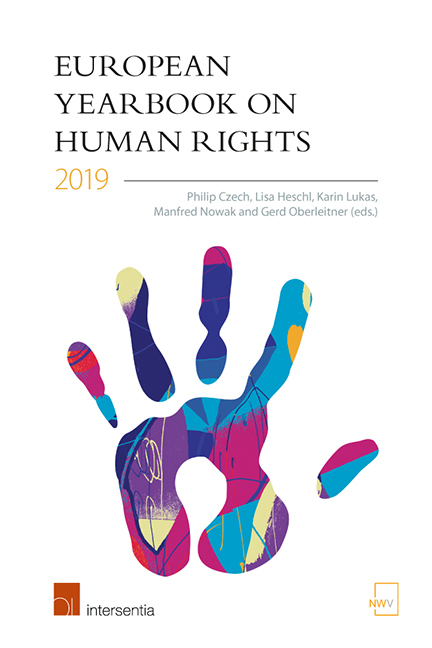Book contents
- Frontmatter
- Miscellaneous Frontmatter
- Editors’ Preface
- Contents
- List of Abbreviations
- List of Contributors
- PART I TOPIC OF THE YEAR
- The Council of Europe's Response to Recent Democratic Backsliding
- PART II EU
- PART III CoE
- PART IV OSCE
- PART V REPORTS FROM THE FIELD
- PART VI OTHERS
- PART VII BOOK REVIEWS
- Index
The Council of Europe's Response to Recent Democratic Backsliding
from PART I - TOPIC OF THE YEAR
Published online by Cambridge University Press: 24 January 2020
- Frontmatter
- Miscellaneous Frontmatter
- Editors’ Preface
- Contents
- List of Abbreviations
- List of Contributors
- PART I TOPIC OF THE YEAR
- The Council of Europe's Response to Recent Democratic Backsliding
- PART II EU
- PART III CoE
- PART IV OSCE
- PART V REPORTS FROM THE FIELD
- PART VI OTHERS
- PART VII BOOK REVIEWS
- Index
Summary
ABSTRACT
The Council of Europe has a number of legal and political mechanisms that can be used to address democratic backsliding in Member States. However, the European Court of Human Rights is not well suited to address backsliding and the threshold for expulsion or suspending voting rights is extremely high. The organisation does dispose of various means of social pressure on Member States, but these proved unable to arrest or reverse recent democratic backsliding in Hungary and Poland, suggesting more robust political means are required.
INTRODUCTION
Much has been written of late about democratic backsliding in general and in Europe in particular. The phenomenon has led to a huge literature about what can or should be done to arrest or reverse the process, much of it concentrating on the European Union (EU), its emerging toolbox, and its reaction to recent developments in Hungary and Poland.
Curiously, the literature largely neglects the Council of Europe (CoE), which sees itself as the guardian of human rights, democracy, and the rule of law in broader Europe. This contribution seeks to remedy this lacuna. The contribution draws not only on the available academic literature and CoE documentation, but also on my personal experience as CoE Commissioner for Human Rights from April 2012 through March 2018.
As Bermeo notes, democratic backsliding is the'state-led debilitation or elimination of any of the political institutions that sustain an existing democracy’. The subversion of democratic norms or rules, the dismantling of the rule of law, and violations of human rights are distinct, but overlapping phenomena. For instance, if media freedom is seriously violated, it is difficult to speak of free elections. A politically dependent constitutional court can no longer serve as a check on the executive or provide an effective remedy to a victim of rights violations. In Europe backsliding has been characterised first and foremost by the destruction of democratic checks and balances, especially steps undermining the independence of the judiciary, government encroachments on the independence and pluralism of public service media, and pressures on commercial media or Non-Governmental Organisations (NGOs).
- Type
- Chapter
- Information
- European Yearbook on Human Rights 2019 , pp. 3 - 32Publisher: IntersentiaPrint publication year: 2019
- 1
- Cited by



